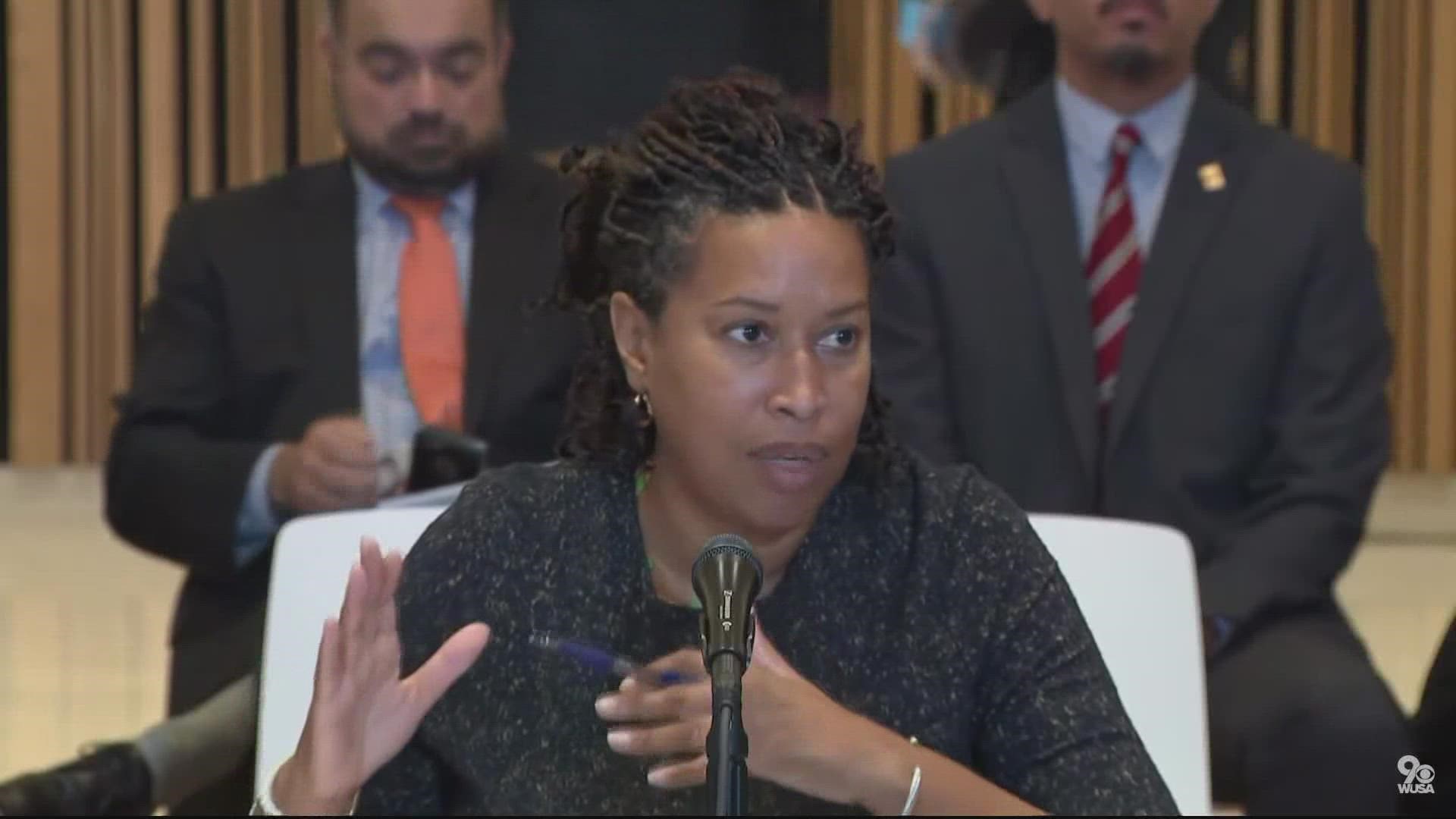WASHINGTON — Editor's note: The above video is from Oct. 26, 2022.
A bill to overhaul D.C.'s criminal code is awaiting the mayor's signature. The City Council voted unanimously Tuesday to pass the bill.
The revised code would bring sweeping changes with everything from jury trials to sentencing.
“It's an overdue change, but one that I think most people have agreed, needs to move forward," Ward 6 Councilmember Charles Allen said.
As head of the Judiciary and Public Safety Committee, he has been leading the charge on the Revised Criminal Code Act.
He said a commission of prosecutors, defense attorneys, and other criminal legal experts have been collaborating and compromising on changes to the code.
They've also made adjustments after 20 hours of public hearings.
Some of the highlights include removing most mandatory minimum sentences, offering early sentence review for inmates 25 and older, and expanding jury trial eligibility.
In regards to mandatory minimums, Allen said, “They frequently just tie the hands of judges and juries, and they treat all victims as if they were the same."
First degree homicide, however, would still carry a mandatory minimum of 24 years.
The sentence review is called "Second Look for All," which will allow people who were convicted when they were 25 and older to petition a judge for sentence review after serving 20 years of their sentence.
Currently, people convicted when they were younger than 25 are allowed to do so after serving 25 years.
“In D.C., unlike every other state in our country, we don't have our own parole system," Allen said. "We don't have a governor that provides clemency. So this is kind of our answer to that.”
In regards to jury trials, the new code would allow anyone charged with a misdemeanor who's facing jail time the right to a jury trial. Right now, that's not the case, and Allen said they are some of the most common offenses.
Last month, Bowser expressed concern with the policy.
“While I don’t have a particular issue with having trials, I do have an issue with making sure we have the judges’ capacity to deal with trials, because if we don’t, even in three years when this goes into effect, that just gums up the whole system," she said.
Councilmember Allen acknowledged that issue and said that's why that change would be phased in more gradually.
DC Superior Court Chief Judge Anita Josey-Herring also expressed concern to reporter Delia Goncalves, saying the court is down 14 judges with an anticipated vacancy of 20 next year.
She said this change would have an "extensive impact" on the courts.
Some of the other changes include adding new penalty classes for all crimes and keeping carjacking a stand-alone offense.
Allen said as the bill stands, it would take effect in three years (2025), with the expanded jury trial rights phased in by 2030.
It's not yet clear when Bowser could sign the bill into law.

